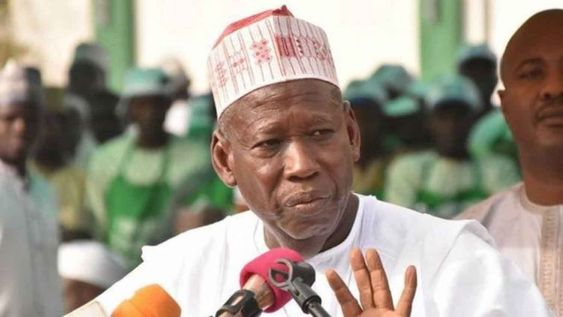Nigeria
Court confirms dismissal of Ganduje with intriguing and unexpected turns

The recent developments in Kano State have captured widespread attention as a court ruling affirmed the removal of Governor Abdullahi Ganduje from office, sparking a wave of intrigues and twists in the political landscape of the state.
This ruling comes amidst heightened tensions and political maneuvering, raising questions about the future of governance in one of Nigeria’s most populous states.
The court’s decision to uphold Ganduje’s removal stems from allegations of electoral malpractice and constitutional breaches during the gubernatorial election, which saw the opposition challenging the legitimacy of his victory.
While Ganduje has vehemently denied any wrongdoing, the court ruling has added a new layer of complexity to the political crisis unfolding in Kano.
Read Also: APC refuses to comply with court order upholding Ganduje’s suspension
The fallout from the court ruling has led to a series of intrigues and twists, with various political actors jostling for power and influence in the wake of Ganduje’s removal.
Speculations abound regarding the next steps for Kano State, including the possibility of fresh elections or the appointment of an interim governor to oversee affairs until a new governor is elected.
The ruling has also reignited tensions between political factions within the state, with supporters of Ganduje and his opponents engaging in heated debates and protests over the legitimacy of the court’s decision.
The uncertainty surrounding Kano’s political future has raised concerns about stability and governance in the state, with implications for its residents and the broader political landscape of Nigeria.
Amidst the intrigues and twists, the court’s affirmation of Ganduje’s removal underscores the importance of upholding the rule of law and respecting democratic processes.
It serves as a reminder that no individual or political party is above the law and that allegations of electoral malpractice must be thoroughly investigated and adjudicated to ensure the integrity of the electoral process.
As Kano grapples with the aftermath of the court ruling, there is a pressing need for calm, dialogue, and reconciliation among all stakeholders to chart a path forward for the state.
Political leaders and civil society actors must work together to ensure that the interests of the people are prioritized and that governance is conducted in a transparent and accountable manner.
The twists and turns in Kano’s political saga serve as a microcosm of the broader challenges facing Nigeria’s democracy, including electoral integrity, rule of law, and political stability.
The outcome of the crisis in Kano will have far-reaching implications for the state’s residents and the future of governance in Nigeria as a whole.
In conclusion, the court’s affirmation of Ganduje’s removal has thrown Kano State into a state of political flux, with intrigues and twists shaping the course of events.
As the state navigates through this crisis, it is imperative for all stakeholders to uphold the rule of law, promote dialogue, and work towards a peaceful resolution that safeguards democracy and the well-being of the people.
